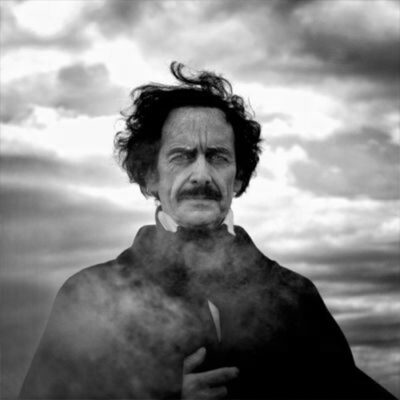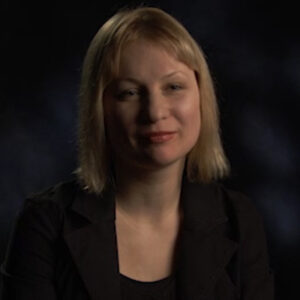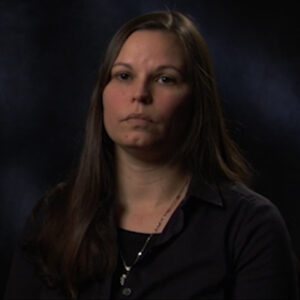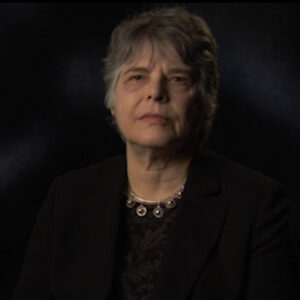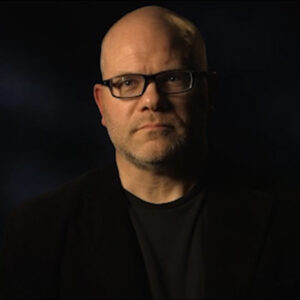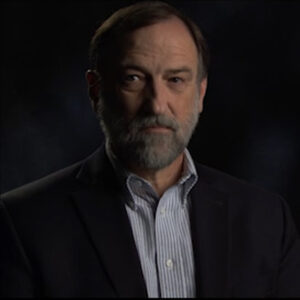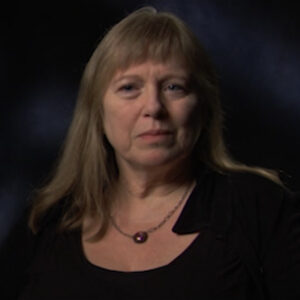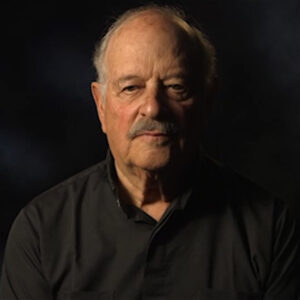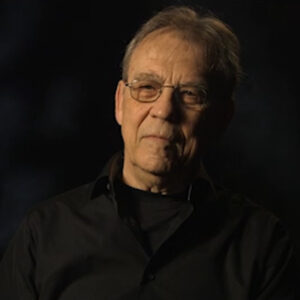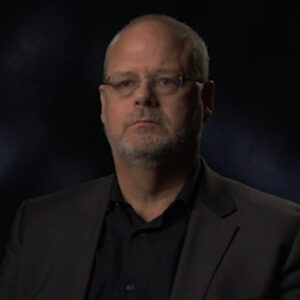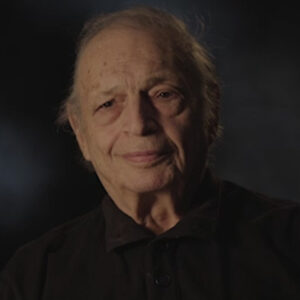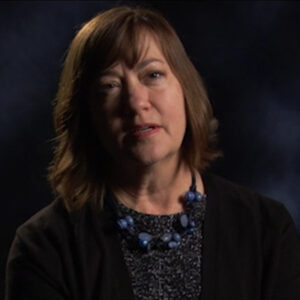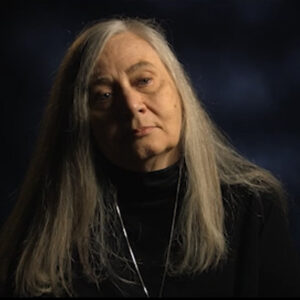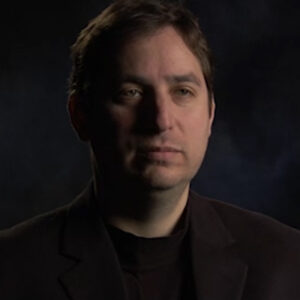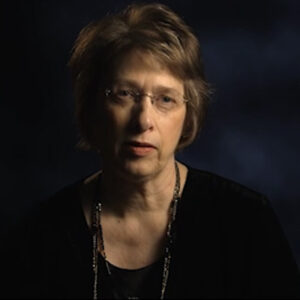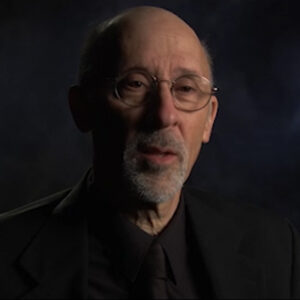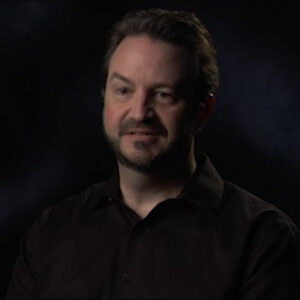Speaker I think that the death of Poe’s mother had to be pretty bewildering to him and to what extent he would remember that later, it’s hard to know. But he carried that knowledge around that they had lost his parents, that he would be separated from his siblings and he was not being well cared for during that period to his mother, was having a lot of financial difficulties because she was ill and because her husband had left. And so I think that had to have affected him quite a bit.
Speaker The why do you think the Allens took him and what was going on between John Allen and Frances?
Speaker The islands were kind of interesting because they they both lost their parents as well. And I think particularly with Frances Allen, there was a seems to have been a certain sympathy with Poe’s situation. And so that seems to be why they took him in. And yet they didn’t formally adopt him. They couldn’t quite commit. So he was always a bit of a stranger in their house.
Speaker As there seems to be evidence that when he was a child, John Allen at least was affectionate toward them, their letters and things. Can you talk a little bit about how the Allens seem to feel toward him when he was six, six, seven, eight, nine when they took him?
Speaker Well, you know, he seems to have really become a part of there. Let me start that again. UPO really seems to have become a part of their family for a while. He was just Edgar Allen, so he took on their name initially. There was no Poe at all for a while.
Speaker And and in fact, his father was one of the first people apparently to really encourage his writing, because at one point he goes to a schoolmaster and says, My son’s been writing these poems, should I get them published? And he wouldn’t always be supportive in that way. But in those early, really crucial years where Poe was forming this idea that this is what he wanted to do with his life, his father was actually open to it.
Speaker Do you mind saying that again and just say John Allen?
Speaker Yeah, right. Right. Because, I mean, I think you know me. I’ll start again there.
Speaker I try to phrase it a bit better to potentially really was a part of the Allen family to the point where for a while he was simply Edgar Allen, there was no Poe. So they really did take him in for a while. And the strange thing is that is that John Allen was actually one of the earliest people to really encourage his writing. At one point, he went to post schoolmaster and said, my son’s been writing these poems, should I get them published? So I put them together into a volume. Their relationship wouldn’t always stay that cordial. But it, you know, strange to say early on, he was someone that really encouraged Poe in thinking about that identity as a writer. It’s a very formative time when you’re a kid like that and you’re thinking, I want to get published. That’s the voice of a future author. And John Allen actually encouraged it for a while.
Speaker I think this is great in the sense that they have the talent open. Um, so, uh.
Speaker It seems like things began to change as Ed became a teenager, spending a lot of John Allen’s money on books and not really showing much aptitude or at least an interest in joining the family business. Can you talk about the beginnings of that friction?
Speaker You know, in some ways that the difficulties that John Allen had with with Edgar Allan Poe are they don’t sound that different in retrospect than what most fathers might have with their teenage sons. There was this wonderful letter where he describes that Poe, who is now 15, is turning sulky, spending time around his friends and acting kind of differently.
Speaker Well, that just sounds like a 15 year old, but it does mark the beginning of a break between them that never really gets healed. Poe is starting to move away from the kind of life as a as a well-educated merchant that I think his father was coming in for and moving more and more towards the arts, which his father, his foster father admired. But I don’t think he saw it as a career.
Speaker That’s great. And in this case, a white man. The context a little. So the beginning of Jacksonian America. I can’t remember exactly what Jackson was elected, but but John Allen really represented this new kind of self-made American mercantilists. And have the embassy and you know how their world views different.
Speaker John Allen is an interesting guy because he’s in some ways kind of this perfect, archetypal American figure. He’s the hard working immigrant who becomes a naturalized American who starts up his own business, who fails at one point, is almost out of money. He’s having to have himself and his family crashed in someone else’s house. It’s a real boom and bust cycle, which was very true of that time. He’s very much a man of his times. He was also kind of a hard figure and his own friends describe him that way, that he could be a very unforgiving and and I think someone described both his countenance and his personality as being a bit hawk like and that he let Edgar know that his existence in this household was dependent on John Allen’s goodwill, that, you know, he could kick him out any time he wanted to. That’s a pretty tough basis for having having a family. It’s a pretty hard way to to set up a parental relationship. And so John Allen was able to raise Edgar in, you know, with a great education and among great wealth eventually. But Edgar was never quite allowed to really be a part of it himself.
Speaker And how do you think, Ed, regarding John Allen’s emphasis on material consumption? And, you know, I imagine that when John Allen bought that mansion in Richmond, imagine after 16, 17, looking around and say, oh, my God, what a horrible place to get that kind of thing. I mean, how do you think he saw it?
Speaker You know, it’s funny. I think I think Edgar was not necessarily opposed to to wealth or he certainly had an eye for architecture. He actually wrote about it occasionally, but he wasn’t willing to do the things necessary to acquire, which is, of course, the story of many artists. It’s not that you necessarily would be sad to be to be wealthy, but you don’t want to do the things that entails. Being a merchant and working in that kind of trade really seemed to hold no appeal for him at all. And that was clearly a disappointment to his father. To the extent that his father was willing to help him, it was by apprenticing to him in his business. He was really not interested in Edgar going in other directions. And so if it had been possible to become rich as an author, I think Poe would have been perfectly happy with that. But it really wasn’t, at least not the way he was doing it.
Speaker That’s great. Thank you. Like Jane Stammerer. So I was 16, I think. What was that relationship and what did her death do?
Speaker So, Jane, Standard is sort of an early heartbreak for Poe. She was the mother of one of his classmates and I think one of the first people that he in which he found really a sympathetic figure, sympathetic adult figure. He had classmates that he’d do things like put on theatrical productions and that kind of thing. He could find other other teenagers basically who who had his same love of art and would take that seriously. To find an adult that would really be empathetic with them was not so easy, especially in his own household. And in Jane’s standard, he seems to have found someone like that. So it was really devastating to have that snatched away that quickly. She was already ailing, really when they met and and that that stuck with them.
Speaker And can you talk a little about how the death of. So his mother died when he was three. Now this mother figure dies, whether she was also kind of a romantic figure and he wrote a famous poem. You talked about the poem and how he’s beginning to find that voice. Which which poem are you referring to as a copy for Alan in the first version of her supposed to be about her?
Speaker I’ve always been dubious about whether that’s been more of a later interpretation.
Speaker I think of other people just talk about how this death of yet another woman in his life began to form or began to give him this fixation.
Speaker What would become an obsession?
Speaker You know, one of the strange things is we think of a lot of romantic era and sort of Gothic literature is having this strange fixation on the death of women and the death of beautiful young women. But this was not necessarily an unusual experience at the time, partly just because of the poor state of public health. You could have someone who was apparently good health carried away very quickly and very tragically. You could also have someone because of TB slowly dying away. And childbirth was another great cause of mortality. And so that theme that comes up in that that literature and that comes up again and again for Poe is something that was also based very much on his own experience. He had lost a mother. He’d lost one of the first people that he had felt this really strong attraction to and Jane standard. And it’s also something that spoke, I think, to his contemporaries, because probably most of them had had that happen to them as well.
Speaker And he was reading romantic poetry. He was loved by your own right and so was he. This I’m talking about when you’re 16, 17, just before he goes off to war, how was he taking this on board? I was beginning to inform his sense of himself as a writer.
Speaker In the first evidence that we see of Poe really starting to connect with poetry is, curiously enough, with Latin poetry. He was very good at working with Latin, loved the language and love the poetry and a lot of the poems that he was looking at, Horatio and Odes and things like that. He was looking at poems that talked about the immortality of poetry. And if you think about this is someone who’s been surrounded by by by death and tragedy for a good part of his life. And he was also in a household that’s very much focused on on money, either the lack of it or eventually having a lot of it. And in art, he’s able to find something that endures something beyond himself. And I think that that that that classical poetry spoke to him first and then that more immediate experience of of the then still living romantic poets that he was growing up with and their various tragic deaths as well. That’s pretty powerful stuff for a teenager.
Speaker That’s really nice. How are you doing? Oh, I’m good.
Speaker Yeah, this is great. Yeah, that’s fine. That’s fine. Yeah.
Speaker Um, the when he swam the James River or whatever it was 15 miles or something on a hot summer day, blistered his back all that and came out boasting and bragging. And I think he compared it to Byron’s famous swim across the Hellespont, or at least he was about you. That’s enough. What was that about? What was he trying to prove to his friends and to Richmond in general?
Speaker It’s funny, Paul, going on this sort of epic swim seems to be in some ways, it’s just an example of, I guess, typical adolescent bravado. You know, that’s the kind of thing you do when you’re that age. And if you pull it off, you’re kind of astonished at it. But also you’re quite ready to boast about it. And he remembered it. He would bring it up again years later. And it’s funny because it doesn’t fit with our image of Poe. We think of him has this, you know, thin, pale, tragic figure and not someone who’s in, you know, great physical health and kind of a strapping young man. But he was four for a while anyway, and he never forgot that. And it’s funny, he still would occasionally write about exercise and things like that later on. So he never quite lost that, even though it doesn’t quite fit with what we necessarily think of him.
Speaker And do you think or have you seen evidence that he felt it kind of that he was very conscious of his somewhat.
Speaker Substandard status as a of not an adopted son and that John Allen, that he was on a provisional basis with John Allen and was the swim in that kind of bravado? Was that part of trying to.
Speaker Well, Paul was never allowed to forget that he was a guest in the Allans house, particularly by by John Allen, I think he found a more empathetic figure in his foster mother. But John Allen always let him know that he was maybe not really an Allen and maybe not going to see that wealth that they were accumulating and that he could kick them out. And so it’s a very tenuous way to live. And I think to the extent that he could create his own identity, it was a way of pushing back against that, whether that was by putting on theatrical productions for for a penny, by swimming in the James River, by by becoming a poet. It was it was a way of establishing himself. It was a way of becoming Poe because he wasn’t really allowed to become an Allen.
Speaker So he goes off to UVA, University of Virginia in Charlottesville, Virginia, when it’s brand new and Jefferson was still alive, he would have tea with students on some days. And I think Monroe and Madison both. Can you describe how excited it was to get there? I mean, it seemed to me that he was only 17 or 18. And how did he do and how excited was he and what did it mean for him to be there?
Speaker Going to the University of Virginia should have been a turning point for. And it was at first, for the first time, he gets to be away from home. It’s it’s the the archetypal college experience. He’s in a dorm. It’s kind of a crazy situation. Lots of fights going on. But he’s also allowed to excel in these classes, especially language classes, Latin, French, things like that. He’s he he takes to them wonderfully. And so he’s also able to now spend lots of time reading, maybe even more so than he was at home. And in fact, his father started complaining, you know, you’re spending all your time doing things like reading Don Quixote. What do you what are you doing? Well, that’s what you do. And in your freshman year, you just start to explore. And so it it really in that regard, should have been this great time for him. And it was I think intellectually, personally, it became a lot more problematic because it’s also when he tried drinking as a as a more active vocation and it’s also when he started gambling and that wound up being disastrous.
Speaker And what eventually happened in terms of John Allen and everything and why why do you think?
Speaker You know, one of the big mysteries I think, for biographers is how how is it that John Allen could go to the. I’m. Let me start that again. I think one of the big mysteries for a lot of biographers is how could John Allen go to the trouble of sending Edgar to the University of Virginia, setting him up with this this education in this fantastic new. Sure. Yeah.
Speaker I think maybe you outside to sort of tell people to just slam the doors.
Speaker It’s better wasn’t supportive and all that.
Speaker One of the real mysteries for a lot of biographers is why would John Allen go to the trouble of sending Edgar to university and then not apparently be very supportive of him? And I think part of that is if if you’ve been a first generation college student, you actually get it, which is you have you have family that maybe understands it’s important to go to university. They don’t necessarily understand what it’s about. They don’t understand how much it costs. They don’t understand what what it is you spend your time doing. A lot of it seems like you’re wasting your time, maybe wasting a lot of money. And that’s exactly what happened with Edgar. He ran out of money almost as soon as he arrived. A week later, he’s writing back home saying, I need more money, I need some laundry, I need some soap. He immediately starts running out of things, which is your classic sort of freshman situation. And his father didn’t get it because he had never he’d never gone to college. He didn’t understand. We sent you with all these things. What’s wrong with you? And it’s unfortunate because I think the fact that they had a difficult relationship in the first place just exacerbated that lack of understanding. And it it made people turn to trying to find money elsewhere. And that didn’t go too well, either.
Speaker Um, I’m just worried.
Speaker Do you have to leave at a particular time?
Speaker No, I’m good for at least a one 30, OK.
Speaker OK, um, so he so he eventually joins the army. What kind of soldier was he? Why was he drawn after being an enlisted man? You decide you want to go to West Point. What do you think he was trying to prove or discover.
Speaker You know, it’s funny how as as best as most people can tell, joins the Army because he’s got to disappear for a while. He’s got creditors after him and at first he moves to Boston and tries to create a new identity for himself, get a new job working at a warehouse on a dock. He tries working for a newspaper for a while. It doesn’t go well. And he’s nearly getting thrown out by his landlady because he’s he’s out of money. And so, you know, the army starts looking pretty attractive at that point if you have to disappear and reinvent yourself. And the ironic thing is Poe actually turns out to be a really good soldier. He actually kind of thrives in the army. And the army has the curious distinction of being the one major institution in post lifetime that actually really seems to appreciate him and actually promotes him and that he does well. And he he gets as far up as he can as as an enlisted man. And and at that point, he starts thinking, well, how can I advance further? And really, the only way you can advance further at that point is by going to West Point.
Speaker And how does he do at West Point?
Speaker West Point did not turn out the way I think that Poe thought it would because he had already had a couple of years experience in the Army. I think he thought he knew what to expect and he’d already been to college before, too. But there was a whole level of discipline involved at West Point that even with some Army experience, Poe was really not prepared for. And he started to really resent his instructors, really resent the routine, and started writing this really vicious poetry, actually, about about a lot of his instructors, which is, if anything, what he became known for at West Point and what what his classmates actually remembered him for. It was as an artist of of a kind of satirical one.
Speaker And how did he get out of West?
Speaker Poe’s way of getting out of West Point was in its own way, very carefully planned, which was if you start missing your appointed times to get up to be there for roll call, to be there for class, you will eventually flunk out. And that’s what happened. He he had it he had a commitment to be at West Point. And the only way he could easily get out of it was either for someone to to buy him out, which wasn’t going to happen because he didn’t have the money or for him to just be a really terrible student. And he chose the latter course.
Speaker This is doing exactly what they said.
Speaker So he ends up in Baltimore. I mean, maybe you can talk just a little bit about why Baltimore was the only place he had family that were taken at that point and what kind of family was there and what were their financial circumstances when he moved in with his family in Baltimore?
Speaker It was really kind of a lost period of time for him. In a way. He had found his family and he had been in touch with them off and on over the years. And it really was a kind of a reuniting with his brother, who was a figure that the pope felt a real attachment to. Who’s the sailor who had seen some of the world? He was writing poetry himself. And so in that regard, it was it was kind of great for him. But their circumstances were very poor. His brother was drinking heavily.
Speaker And so as a day to day situation, it wasn’t that good for him. And, you know, in the space of a few years, Poe’s gone from being kind of the scion of a wealthy Virginia family and someone who’s being sent to university, to being in a hovel and having no apparent future in front of them. And people are dying around him. There are epidemics going on as his brother is falling apart. So in some ways, I think spiritually is probably kind of important for him to reconnect with his family. But it was also a pretty tough time for him.
Speaker And can you describe the household, who was there and what kind of space?
Speaker I can probably only give a limited description of that, but I’ll give it a try post post family at that point in Baltimore, he had among various cousins and people like that, his his aunt Maria, his cousin Virginia, and his brother Henry, and also his sister Rosalie was was not far away and they were very poor. One of the things that kind of haunted Poe and haunted his family was that his grandfather had spent a great deal of money in support of the revolution, and they had always harbored this hope decades later that somehow they were going to get compensated for this. This was going to be how they would maybe somehow make their fortune, their family would finally claim that money. So is this sort of strange situation where they were living in pretty desperate poverty and in very poor health. But there was this vague notion that maybe somehow, eventually their ship would come in and it didn’t.
Speaker And can you just describe, you know, Maria Cloning’s Maria is and is her daughter.
Speaker We call it system, just kind of give us a run, especially those two.
Speaker Sure. Maria Clemens is a really curious figure because she does become the closest thing for most of Poe’s life that he has to a mother. And in her, he finally found someone that he could trust who was a shoulder to cry on, who was sympathetic to him as a family member and who didn’t disappear, who wasn’t taken away from him. And that was vital for Poe. He finally found some sort of stability. He found a household that he could live in. And it’s interesting because Maria herself was not a particularly great artist. She didn’t necessarily entirely understand, I think, what he was doing with his art. But I think from his point of view, she didn’t she didn’t have to necessarily he had other people for that. What he didn’t have was family that he could trust and rely on. And in her, that’s who he found. And there was her daughter to Virginia, who was still very young at that point, but right off the bat, someone that that Poe clearly cared very deeply about.
Speaker So he eventually gets this job, but, you know, I could ask for everything so well, but we’ll never get through this, so we’re going to skip ahead.
Speaker So he lands of the Southern Literary Messengers, first professional job in the biz. Um, how does he take to it and how how what’s his relationship with his boss like Thomas?
Speaker Yeah, I’m of course, now I’m blanking.
Speaker Thomas W. you can just call what’s that relationship like and what does this Pope, John Paul is someone who who really could be a brilliant editor.
Speaker I mean, we we expect that he’d be a brilliant writer, but he’s very good at working with other people’s work and working as a magazine editor. He’s got a sharp eye as a proofreader. He’s got a sharp eye for what will sell in magazines. So he should be a really good fit for a publication like this other than literary messenger. And he was for a while. The problem is he’s not a great employee. He might be a great editor, but on a day to day basis, he’s a little unsteady and in particular, his drinking starts to get the better of him. And that was one of Thomas White’s great problems with Poe. Here’s someone who’s a great editor, a great talent, but he can’t rely on them and their starts being real friction with him about this. And White starts warning him no man is safe who drinks before breakfast. You know, if you’re going to drink after work, that’s one thing. But if you’re showing up that way in the morning, that’s a problem. And this is going to be a pattern that just plays out again and again for Poe. He’s such a promising and industrious writer and editor that how can you not hire him? But he’s also so difficult to work with that. How can you keep him? And that’s that’s the problem that he runs into over and over again.
Speaker Can you give a description of that debate that they have that he might have over this story or he’s just sort of set it up, as you know, and publish one of those early stories? So I was horrified by was.
Speaker Yeah, so one of are we starting out with that after Polaroid’s barrenness and runs in the Southern or Head Start that again after Bérénice goes to the Southern Literary Messenger and it’s one of those really early and really sort of horrifying works.
Speaker Sure. To go. Yeah.
Speaker Let me start by saying, while Paul was right to publish one of those early stories.
Speaker Right. You know, it’s funny, I, I want to be careful of that because I’m not sure if Bérénice ran right before he actually got hired or not.
Speaker So I might the I’m not totally sure the chronology on that, János. Overly picky, but I’ll try to find a way into that, though.
Speaker Early on, Thomas White is wondering about the kind of work that Poe’s writing and béarnaise, which which runs in the Southern Literary Messenger, is a good example of this. It’s a pretty weird and disturbing piece of work. And right off the bat, whites willing to run it because there is an audience for it. But he doesn’t feel great about it either and pose much more matter of fact about it. He says, well, you know, I have my doubts about this kind of literature, too, but people read it. And if you want to be an artist and you want your art out there, it has to be read. And he actually mounts a pretty good defense for it in that regard, that some of the best talents in Britain, in the United States are writing this sort of terrifying literature, the sensational literature. And Poe’s argument in some ways is it’s it’s all fine and well what people say about your work. But in the end, it’s whether or not they’re reading it. That is really one of the acid tests of whether it’s actually calling out to people. And so in that regard, he’s he’s very kind of unsentimental in his response to what he’s he’s he’s very pragmatic about what that magazine needs to get up and running and maybe what is what what his own career needs to get up and running as well.
Speaker And how important do you think that period of literary messenger was in terms of giving him the career skills that he used to?
Speaker I think the Southern literary message, the Southern Literary Messenger sort of thing, you know, the Southern Literary Messenger was really key for Poe’s identity because now he’s an editor. There are lots of writers out there. There are lots of people who want to write and who were mailing in works to different publications. But there is only so many people that can actually edit that can actually encompass a vision that includes other people’s writing to me to start that again, those weird noise going on out there.
Speaker Yeah, terrible. It wasn’t terrible, but I can start that again.
Speaker Sorry.
Speaker The Southern Literary Messenger is really important for Poe’s development because he he’d always been a writer. He’d been thinking of himself as a writer ever since he was a child. But now he’s also thinking about himself as a professional who works with words. There are lots of people out there sending stories and poems to magazines. Only a few of them think about doing it day in, day out as a job and also working with other people’s writing and thinking about how the writing of other people actually works. And that’s what you have to do to be an editor. You have to become a craftsman. And at that point, Poe really is thinking like a professional, like a working artist. And so that’s a crucial development for him.
Speaker You doing well, OK? Let me know if you get uncomfortable. Oh, no, I’m good.
Speaker That was really good.
Speaker So it’s in this period that he marries Virginia and you set that up just like how old she was, maybe even though we paid her in money to move to Richmond so he could marry her.
Speaker And what that meant and how shocking that was to people, I mean, certainly gave it a sense of context, like, was it really weird or wasn’t that weird for people that, you know, after Poe left Baltimore?
Speaker You want to like just to remind us that she’s his cousin, right? She’s 13, right? Yeah.
Speaker So after Poe moves from Baltimore to Richmond to take up this editing job, he’s actually doing pretty well for the first time in a long time. He’s got a steady job. Most days he mostly manages to get along with his his editor. And this should be a stable time in his life. But he’s also miserable and he’s miserable because he’s away from Maria Klemm and he’s away from his cousin Virginia. And so he finally convinces them to move down and join him. He then marries Virginia, which seems pretty strange, too, I think any any modern perspective. She’s 13 years old. She’s his cousin. It seems strange and it is strange, but it’s not quite as strange for back then as it is for today. It wasn’t illegal. You could actually marry your cousin. You could marry someone who was 13. Under Virginia law, you had to get consent from from their guardian. You had to have a couple of witnesses. But it was known to happen. And I think part of it for Poe was that he had finally found a family and he wanted to stay in it for a good part of it. Seems as unsettling as it may be to us now that he just felt he had found the right person for him. And every account from the people that knew them was that they deeply cared about each other. And it was always a very happy and stable relationship, as close to one as as possible seems to have gotten. The other curious thing I think, though, is that there’s always been a whiff of scandal about it because their marriage license is for someone who’s over twenty one. And so some have wondered, was he trying to cover up something? My guess is that it might have been a matter of convenience because for the over twenty one marriage you needed one witness and for for marrying Virginia, he really needed to. And her mother was there. They had another witness there. Poe openly talked about the marriage with other people. I think what happened was the second witness didn’t show up that day and they just said, let’s just use the other form.
Speaker Interesting, and just as the one sentence, can you just say so, Virginia was 13, his first cousin ever was.
Speaker However, he was I think he was 27 at that point.
Speaker But I yeah, I do want to make sure the everything.
Speaker I’m not sure why any way we can it to wait twenty six or right.
Speaker So when when Poe gets married to Virginia, she’s 13 years old, he’s 27. It’s a bit of a mismatch, but it’s not one that was unknown for that time.
Speaker That’s great. Thank you.
Speaker We’re doing really well. OK, so you want to do the twenty six. Do you think you you know, can I actually take a quick look, as I think I mentioned it somewhere in there and yeah. Pretty sure I’m remembering twenty seven but I don’t trust man so he decides to leave or just tired I guess and decide we have to move to New York and move to the big, big show, except it’s the middle of a financial panic to make or make a living as a writer and editor was hard enough in the middle of a financial crisis, like virtually impossible.
Speaker But talk a little bit how he lands in New York.
Speaker How hard is it to be a writer, to make your living as a writer and or editor in America, in New York at that time?
Speaker Paul wanted to write and edit for a living, and you could do that. But it wasn’t an easy way to make a living. For one thing, you had to be able to get along with your employers and he had a hard time doing that. But the other is that writing was just and always has been a tough profession. It’s a very unsteady profession. There was a lot of pirating of work going on at that time. So even if you had a successful piece of writing that was a big hit, a bunch of other people would run off copies of it without paying you. So that was a challenge for him. I think the other, too, was that he had a hard time breaking out of of short stories and poems. And people like to claim that writing a novel was really not so different than writing a short story. If you could do the one, you could do the other. And he went to publishers with more or less the same argument. I’m going to put together a collection of short stories and it’ll kind of read like a novel. And the publishers did not buy it literally or figuratively, because they hear this from writers all the time, writers who are able to write short stories and they say, well, hey, we’ll make a collection and it’ll kind of be like a book. And he couldn’t get any traction with that. He couldn’t sell it. And what he realized was he really did have to sit down and write an actual novel, and that was how he could maybe make a living.
Speaker How did that go?
Speaker Po’s attempt at writing a novel is one of the great oddities of American literature because it’s not a form that he naturally took to. He really was a short story writer trapped in a contract for a novel. And so the beginning of him is this kind of boy’s adventure of running off the sea. Then it turns into kind of an endurance story and this kind of maritime survival narrative. And then it turns into this pretty far out science fiction story and wildly inventive at that point to end. The individual sections and passages of him are wonderful as a work, as a whole. It’s a bit of a mess. He he never quite mastered writing novels and he didn’t have a great desire to return to that form, really.
Speaker A person of very high blood pressure, so I hope you’re going to be OK with this.
Speaker No, I don’t think there’s much way, way over it. Yeah, I think I know.
Speaker Yeah, and you did, too.
Speaker So moving on, when these stars publish the tales of tell tale are the ones that we cover that fall the house of Usher where he’s juxtaposing humor and horror and and what is he what is he latching on to the Gothic idea? What is he digging into and why is he so good at?
Speaker Poe’s first real masterpiece is probably Lightyear. And the reason for that is that it’s when he starts to believe his own storytelling in his early stories, he’s always kind of joking around with the reader a bit. He’s always got to sort of stop and let you know that this is a story and he’s got to put in a little bit of flashy book learning to show that he’s been doing lots of research on other sources and that he’s a learned fellow and he’s always got little bits of odd, odd bits of humor that don’t quite fit the story. And he never entirely follows through on the side of the story, never fully invested in the narrators. And with Lygia for the first time, he does. He really brings it and he really invests himself fully in the narrator. That story, you never leave that narrator’s voice. You never are reminded that this is fiction. And and the impact is is as devastating as a work of fiction. It becomes much more powerful at that point. And from that point onwards, his fiction just becomes more and more powerful because he’s able to create these often tortured and maniacal first person narrators who you who you and more importantly, pull himself fully believes in. He’s able to to sustain that voice.
Speaker You know, in the context of that, either like you or one of those examples talk about is this idea of grabbing the reader the first sentence and then just setting at home and never lets the reader go and be short enough so the reader is not going to get up in the middle.
Speaker What’s that about?
Speaker I think one of the great sort of technical masterpieces that Poe did is The Tell-Tale Heart, because it has the barest elements of of a story. It has a narrator, it has a lantern, it has a bed and a pillow and and a couple of lines of dialogue from the victim. It’s the barest elements of of a shocking murder story. And yet he turns it into something that’s universal because that first person voice addressing you, insisting that they’re sane and insisting that what they’re doing is is entirely warranted and kind of proud of it at first is so disturbing and so real and so well sustained that it’s it’s a perfect technical performance and and it’s a very brief piece. He’s able to sustain that effect in part because he’s not having to do it for hundreds of pages at a time. You can read that in a single sitting and just be struck by the totality of the work all at once of how perfectly the plot and the voice has been realized.
Speaker And to broaden the context a little, so I think so many readers have said you oppose me in this weird outliers and some kind of opium addict around the edges when in fact he was borrowing stuff from the newspapers. He was he was latching on to this rising press.
Speaker Sensationalists appetite for murder and mayhem. You just talked about it was people you knew, people loved this stuff, having crowded cities and urban anxieties and suddenly not knowing your neighbors, all that kind of stuff. How’s that working with those fiction?
Speaker Poe is very much a man of his times in some ways, but he’s also one that speaks to us today. And in part, it’s because the nature of the country itself was starting to change. Science was starting to progress in a manner that people couldn’t be sure quite what to believe anymore, which Poe loved because it allowed him to write hoaxes about people flying all the way across the ocean. For instance, he also was living in a time when cities were growing very rapidly and all the kind of alienation and loneliness and also that ability to change your identity that comes along with it. All the benefits that come along with the city are all happening at the same time. People are moving in from villages, moving in from the countryside to these industrializing, rapidly expanding cities and pose a part of that and is very much tuned in to that. And that’s something that still speaks to us today.
Speaker And that’s great. Thank you. Um.
Speaker So in this period to we started to see people really struggling between wanting to be a popular, successful moneymaking writer and wanting to be a man of high art, you can talk about that tension in the room and begins to do one of the perfect examples of the tension that Poe felt between wanting to be a popular artist and have respectability, I think was his resentment of Henry Wadsworth Longfellow. Longfellow was the person that Poe was supposed to be if he had stayed in college, if he’d inherited that money from from the Allens, if he had been living in a nice mansion and had become a professor of languages, that was basically Longfellow’s life. And in a way, it should have imposed life, too. And when he saw Longfellow, he saw someone that had the life that he should have had but was denied. And the interesting thing about that is I think Longfellow understood that. He later said I don’t know why he was so angry at me, but there must have been some cause with his troubles with the world that just happened to focus them on me. And I think that’s what it was. He did have a longing for that kind of respectable, orderly, professor, professorial life, and he never quite got it.
Speaker This is a really general question, but how was he who knew how was he?
Speaker He had this mission of trying to elevate American literature. He talked about that sometimes and make it every bit the equal of European literature.
Speaker But but but not rustic American, a real sort of serious voice in that mission and probably saw himself as a missionary.
Speaker Poe’s way of of elevating American literature was to, in a way, not to not care about it being American. In other words, he really resented reviewers that would praise a book just because it was an American book. He was very hard on on on books, especially fiction and poetry as a reviewer. And in part, it was because he felt that the nationalism of the time was giving kind of a free pass to writers who were producing substandard work. And so by his way of thinking, the way you you actually create a great national literature is by not cutting them any slack and by saying this needs to be as good as what we’re getting from France and from Britain. I think part of that, too, is that he he spent a good part of his youth growing up in Britain. And so he he’s this curious kind of Anglo American background that is actually kind of unique among the American writers of that era. Most of his contemporaries did, in fact, grow up in America. And Poe always has one foot in America and one foot out, which also might have been part of the reason why his his work became so popular in Europe as well.
Speaker He has an ear for both the Raven.
Speaker So what did The Raven do for modern contextually some of the pop star movement or whatever, but just to give a sense of what it did for them overnight and yet how he blew it.
Speaker The funny thing about The Raven is it wasn’t quite his first brush with fame. He’d actually had some success with the gold bug, but it was his first brush with fame that kept going on and on and on. He would forever be the person who wrote The Raven, certainly within his own lifetime. And and the effect was almost immediate. And I think part of it is because it’s a poem. It’s a poem that that you can recite. It’s a poem that a child can recite and you can read it very quickly in one sitting. And it has an immediate effect on you. It can run in newspapers, it can run in magazines, it can be parodied and was endlessly and memorized. And suddenly he’s become part of the common culture. He’s become part of the language of art at that time and is turning up in recitation textbooks and that kind of thing that can kind of turn your head around a bit. Although the hard thing for Poe is he barely made any money off of it because it was all being pirated, where he was actually able to realize any good fortune from it was by lecturing, because now he was not just Edgar Allan Poe. He was Edgar Allan Poe, author of The Raven. And as badly as a lecture went, if he wound up the lecture by reciting The Raven, he could kind of save it.
Speaker And what did it do for him in the New York Literary Society?
Speaker You know, Powell, I think, was was well regarded in New York in terms of his art personally, he had a harder time and it was because he really antagonized people, partly as a reviewer. And I think also partly because of his drinking, he would get very argumentative and that didn’t serve him very well. He also wrote a pretty scathing series of profiles of his fellow writers and editors where he felt he was just being honest. And some of the some of the worst lines were written about his friends and that that didn’t help him much. And it’s unfortunate because it got in the way of his art. His art really never faltered, but his ability to work as a professional with other people and with other people in the publishing business got in the way constantly. And I think it colored how people saw his work, at least initially. They were maybe inclined not to take it as seriously in some quarters because they they didn’t get along with them.
Speaker So it’s really good for you. Exactly. Oh, good. Is it interesting someone who is fascinating? I know you’re just such a crazy story. Um.
Speaker He can you talk a little about the women women writers, Margaret Fuller, anyway, how you took women writers seriously?
Speaker I’m like a lot of other critics and writers. And what did that do for you?
Speaker Opposed writing in an era where women writers were really becoming ascendant. I mean, they’d always been a presence and publishing, particularly in poetry. But by this point, you have people writing novels that are becoming very popular in a number of very popular poets. And you have someone like Margaret Fuller who poun you pretty well and who had been an advocate at times for his work and who was a very powerful writer on women’s issues too. And so in that regard, Poe was actually active as a writer and an editor at a time where you had to be thinking about women writers and you had to be thinking about women as an audience because more and more women were also becoming literate at that point. It was a tremendous new audience for literature. So I think that that deeply affected his his work and his understanding of other authors.
Speaker It’s now I’ve lost my train of thought.
Speaker I guess I’m of the value of authority. That’s like all those down scribbling, but never.
Speaker Yeah. That Poe never had quite the issue with with sentimentality and literature that I think some of his contemporaries had. And part of that is that an impatience with writing domestic literature, with writing about households, with having sentimentality or what they would label as sentimentality is kind of code for saying you’re writing about things I don’t care about. You’re writing about things for women. And that was a way that male critics would just sort of brush them off. And yet clearly they were speaking to issues of their time. They were speaking to a large audience who appreciated what they were doing. And I think in that regard, Poe actually took their work seriously. He was actually much more open to it than than some other critics of the time were.
Speaker Thank you. Well, we’re getting through it. Let’s see, you’re OK. Oh, yeah. Yeah, I’m fine.
Speaker I just found the third page. Oh, my God.
Speaker Oh, so the questions don’t work alcohol like we understand it, or was it some other issue?
Speaker Why was it such a minefield for Paul was an alcoholic? And I think you don’t have to hear his enemies from the time to think that. You just have to look at what his friends say and what Paul himself would sometimes say. He has letters where he apologizes for his behavior. He talks about his illness and his condition. And it’s a shame because his enemies used it to attack him. They used it to attack his moral character and to somehow kind of write off his work. I’m not sure how much the drinking affected his art. It affected his ability to make the art, though, and it affected his ability to sell it, because when Poe drank, he got argumentative. And when he argued it was with editors and publishers and it made it very hard for him to have a constant presence in any magazine. His work was scattered all over the place, and it’s hard to build up a really solid body of literature and a solid reputation when you’re jumping from one place to another like that. So in that way, it really interfered with his career and he knew that some of his most productive periods was when he he was sober and made a very deliberate effort to say to stay sober as well. He joined Temperance Societies. You know, he would pledge to friends and to theodicy later on that he was going to stay sober. He tried and sometimes he succeeded, but then he wouldn’t and couldn’t get better.
Speaker But also so the other side of the same coin about his work habits and his incredible productivity, I mean, he just got so much done despite all this.
Speaker And I mean, there’s I think but he wrote a letter once about how she could stay up all night and she would help him bring him to you or whatever. Just talk about how much she managed to get done anyway, despite the poverty, the drinking for his illness, which I want to get to, Poe could be an extraordinarily disciplined and productive writer.
Speaker And a lot of that it seemed to come out of of late nights alone, drinking a lot of coffee and working on a deadline, maybe because the rent was due. You know, he didn’t have the luxury of having writer’s block because he had to keep working.
Speaker And he found it so difficult to hang on to other forms of work that it kind of forced his hand. He had to stay productive. And so that helped. But the other was that he was just passionate about his art. He cared intensely about what he was doing. And that partly, I think, came from also his being an editor. He he knew how his work would look in the magazine. He knew which magazines the work made sense for. He knew what kind of production schedule he had to keep up to stay alive as a writer. And so it’s funny, we don’t think of Poe and his popular image as someone who’s a hard, industrious worker. But he could be and he could be with his art.
Speaker I want to flash back in time a little bit to one Virginia first as our coverage of playing the piano and you know, if you can find your answer to that period, I mean, I think it was a very successful moment for otherwise.
Speaker I think you just described to me that he was quite successful. And, yeah, this thing happens. What do you think that did to him when she first became one?
Speaker Virginia first became ill? It it casts a shadow over Paul that lasted for years. And no matter what his successes were anywhere else or his failures, that was a constant for him, which was his worry about his wife, about his wife’s health, and in particular, tuberculosis was an especially cruel way for it to happen because it’s long, it’s drawn out. You know, someone is dying long in advance. And he had to live with that and he had to live with that knowledge that he could lose her at any time. And it’s something that he never quite got over after it started and he never quite got over it after it ended either.
Speaker And then flash forward, I guess, about five years to when their living and for affordable college, no money. She’s lying under Asami. Great code with a cat on her chest trying to stay warm.
Speaker What that scene there’s a wonderful account by someone who visited Poe’s house in that period. It around for Fordham. He’s out in this sort of farmland. There’s apple trees. He’s he’s trying to tame a bird. In some ways. It should be a very bucolic scene. But what you have are three people crammed into a very small house, Poe, very ill a lot of the time, but trying his hardest to keep writing. And Virginia just declining and declining and getting worse and worse. And they don’t have money and they can barely keep warm. All the blankets are piled up on her. His old army coat is on top of her. Anything to keep warm. The cat’s on top of her. It’s just it’s a very desperate time for him. And even that, had they been in the best of circumstances financially, it would have been devastating for him. But the fact that he had such a hard time providing for her during this period made it all the harder for for poor.
Speaker And the impact of her death and the fact that she died of TB the same way his mother had at the same age.
Speaker What do you think about by pretty much every account, the impact of Virginia’s death was just devastating on people. There are vague accounts of him being ill for months and months at a time afterwards and incoherent during much of that period in a number of accounts and letters and things like that with post. If someone’s talking about his condition or his illness, they’re probably talking about him drinking. And I think that’s that’s how he cope. For a while. He barely remembers that period. Afterwards, he talks about sort of coming out of this fog much later on it. It really nearly undid him altogether.
Speaker OK, so why why is Poe’s life, his biography so often this is now going to matter?
Speaker Yeah.
Speaker Why is his biography so often conflated and has been forever? Like one of the earliest movies W Griffith ever did was called The Raven, but is really about Poe. And before that, there were probably stories of books that conflated his biography with his stories. What is and why does that happen over and over? I mean, just that’s the John Cusack is that, you know, there’s a real desire that people have to.
Speaker Let me let me start again with that. Actually, I think if you look at the life of an artist that can tell you a lot about their work, it can help you understand their work quite a bit. The work doesn’t necessarily explain the artist, though. It doesn’t necessarily work the other way around. The fact that someone took a day or a week or a month and were fascinated by a particular idea and expressed it in that form may or may not have a whole lot to do with their their personality. And because and because Poe’s life is so tragic in some ways, it’s tempting to read that kind of Gothic horror of his own life into what he was writing. But some of his greatest works came from the most stable and boring periods of his life. So it it’s tempting to conflate the two, but I don’t think it’s quite accurate. And it’s worth remembering there were lots of people who had tragic lives. There were lots of people who had drinking problems. There were lots of people who had had a fortune denied to them or who had lost members of their family. They didn’t go and write the fall of the House of Usher, though. Poe was a great artist from the beginning, really. And I think in some ways the tragedy of his life, of his personal life, it fed into his art a bit, but also as much as anything, it interfered with his art. What’s miraculous is that he wrote as much as he did in those conditions.
Speaker But what do you think it is about his stories that do invite filmmakers or other kinds of artists to appropriate the biography and story and merge them all into one?
Speaker The fact that Poe’s life almost seems to rhyme in a strange way, his biography almost rhymes with his work that you have these kind of tortured narrators in these terrible situations and often very self-destructive in their own way.
Speaker You can you can read some oppose personality into that. It’s kind of a reductive way to look at it. But, boy, it’s if you’re if you’re writing about Poe or making a movie about Poe, it’s awfully tempting to use that. And so a lot of his popular image and a lot of the way that poem Self gets represented, we don’t see Poe doing proofreading edits. We don’t see Poe, you know, making himself coffee and settling in for a long night of writing. We see the tortured mad man Poe. That was an aspect of his life, but it wasn’t most of it. And it wasn’t how he was able to make his art. But it it does play well.
Speaker That’s what explains his enduring popular generation after generation.
Speaker I think what works so well about PO in some ways is his mastery of the narrative voice that, yes, it’s it’s of his time. But he’s speaking directly to you, the reader, in a very recognizable way. Something like The The Tell-Tale Heart reads just as perfectly now as when it was written. It’s not a period piece at all, really.
Speaker And there’s not many writers from that time that you can say about that. You can say that about there are some who are of historic interest. There are some whose work actually holds up pretty well. Poe’s holds up almost perfectly. He’s of his time. It’s very recognizable as being something from the eighteen hundreds, but it doesn’t have to be. And the fact that he’s so fully a part of those narrators and inhabits them so well that you can hear them, you can hear them in the present. That’s part of what makes his work hold up so well.
Speaker What do you think about the mystery was dead, do you have theories? How do you think it feeds into this whole image that I have?
Speaker The probably unromantic view that the simplest explanation for Poe’s death is probably the correct one and the one that was initially given out, which is that he drank and and that he he drank himself to death and was found in the street that way. That was the reaction of the people who initially came upon the scene. And and it’s the one that makes the most sense with the rest of his life. And that that period of his life, particularly because he had gone through a long sober period at that point, he had been trying very hard to stop drinking. And if you do that and you start drinking very heavily again, that’s a particularly dangerous point to be at. That said, the somewhat mysterious circumstances around it, they feed so perfectly into Poe’s own work and personality that really how could people not want to make a mystery of it? And there is some mystery about it. It’ll probably never be settled for certain.
Speaker OK, let’s cut for a minute, Mark, is this right? So, no, great. Yeah. What’s wrong again?
Speaker Um, so talk about that genre that he is credited with inventing. What exactly did he and then why did it catch on and why did people latch on to it? What was he trying to.
Speaker What’s amazing about Poe is that, you know, with most genres of writing, you you find lots of people who kind of originate it and with detective stories, to the extent that you can say one person’s behind this genre, that’s the genre you can say about it, it’s Poe. And there are lots of precursors. There’s crime writing, there’s sort of true crime writing before then. There’s people writing memoirs about being a detective. There are some elements of mystery stories that are around before then. But having that really eccentric, central, brilliant central figure and the sidekick who’s kind of a stand in for the reader and a locked room mystery, an impossible murder and a confrontation of the suspect at the end of it and false leads all the things that we think of as these classic aspects of a detective story. They all come together. It’s like a lightning bolt. They all come together at once in in that first detective story of Poe’s. And you could say in that regard, it’s it’s maybe the most influential short story of the 19th century. You have an entire massively popular genre of literature that starts at that moment.

